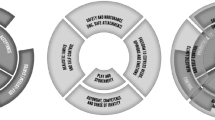Summary
An understanding of the individual, family, and cultural schemas is essential for patients to understand why and how they respond. An understanding of the schemas will explain patients’ past behavior, make sense of their present behavior, and help them to anticipate their future behavior. The major therapeutic task is help them identify the schemas, where they came from, what effect they have on their life, and how likely they are to change them.
The therapeutic steps are (1) the explication of the schemas based on the patient’s verbalizations, (2) exploration of the schemas to ascertain the value and power they have for the individual, (3) assessment of the thoughts and ideas that maintain particular schemas, (4) identifying and focusing on the attendant feelings and behaviors that derive from the schemas, (5) structuring specific interventions based on the patient’s idiosyncratic personal, family, and cultural schemas, and (6) structuring relapse prevention strategies to assist the patient in generalizing the therapeutic gain to other situations and occurrences. By confronting, disputing, or responding more adaptively to powerful, long-held schemas and to the emotional, affective, and cognitive sequelae of the schemas, we can begin to help the patient to move in more productive and coping directions.
These templates for understanding how people learn to understand their world are the essential ingredients in cognition, affect, and behavior. Schemas then become the main focus for all CBT.
Access this chapter
Tax calculation will be finalised at checkout
Purchases are for personal use only
Preview
Unable to display preview. Download preview PDF.
Similar content being viewed by others
References
Adler, A. (1927). Understanding Human Nature. New York: Greenberg.
Beck, A.T., Freeman, A., and Associates, (1990). Cognitive Therapy of Personality Disorders. New York: Guilford.
Beck, A.T., Freeman, A., Davis, D.D., and Associates (2003). Cognitive Therapy of Personality Disorders (2nd ed.). New York: Guilford.
Beck, A.T., Rush, A.J., Shaw, B.F., and Emery, G. (1979). Cognitive Therapy of Depression. New York: Guilford.
Freeman, A., and DeWolfe, R. (1992). The Ten Dumbest Mistakes Smart People Make. New York: HarperCollins.
Freeman, A. and Leaf, R. (1989). Cognitive therapy of personality disorders. In A. Freeman, K. M. Simon, L.E. Beutler, and H. Arkowitz, Handbook of Cognitive Therapy of Personality Disorders. New York: Plenum.
Freeman, A., Pretzer, J., Fleming, B., and Simon, K.M. (1990). Clinical Applications of Cognitive Therapy. New York: Plenum.
Freeman, A., Pretzer, J., Fleming, B., and Simon, K.M. (2004). Clinical Applications of Cognitive Therapy, (2nd ed.). New York: Kluwer Academic/Plenum Publishers.
Hastie, R. (1984). Causes and effects of causal attributions. Journal of Personality and Social Psychology, 46(1), 44–56.
McGoldrich, M. (1982). Normal Family Process. New York: Guilford.
Rosen, H., (1989). Piagetian dimensions of clinical relevance, in A. Freeman, K.M. Simon, L.E. Beutler and H. Arkowitz, Comprehensive Handbook of Cognitive Therapy. New York: Plenum.
Schank, R.C., and Abelson, R.P. (1977). Scripts, plans, goals, and understanding. Hinsdale, NJ: Erlbaum.
Taylor, S., Crocker, J., and D’Agotino, J. (1978). Schematic bases of social problem-solving, Personality & Social Psychology Bulletin, 4(3) 447–451.
Young, J. (1991). Cognitive Therapy for Personality Disorders: A Schematic Focused Approach. Sarasota. FL: Professional Resource Press.
Author information
Authors and Affiliations
Editor information
Editors and Affiliations
Rights and permissions
Copyright information
© 2005 Springer Science+Business Media, Inc.
About this chapter
Cite this chapter
Freeman, A., Freeman, S. (2005). Understanding Schemas. In: Freeman, A., Felgoise, S.H., Nezu, C.M., Nezu, A.M., Reinecke, M.A. (eds) Encyclopedia of Cognitive Behavior Therapy. Springer, Boston, MA. https://doi.org/10.1007/0-306-48581-8_117
Download citation
DOI: https://doi.org/10.1007/0-306-48581-8_117
Publisher Name: Springer, Boston, MA
Print ISBN: 978-0-306-48580-0
Online ISBN: 978-0-306-48581-7
eBook Packages: Behavioral ScienceBehavioral Science and Psychology (R0)




